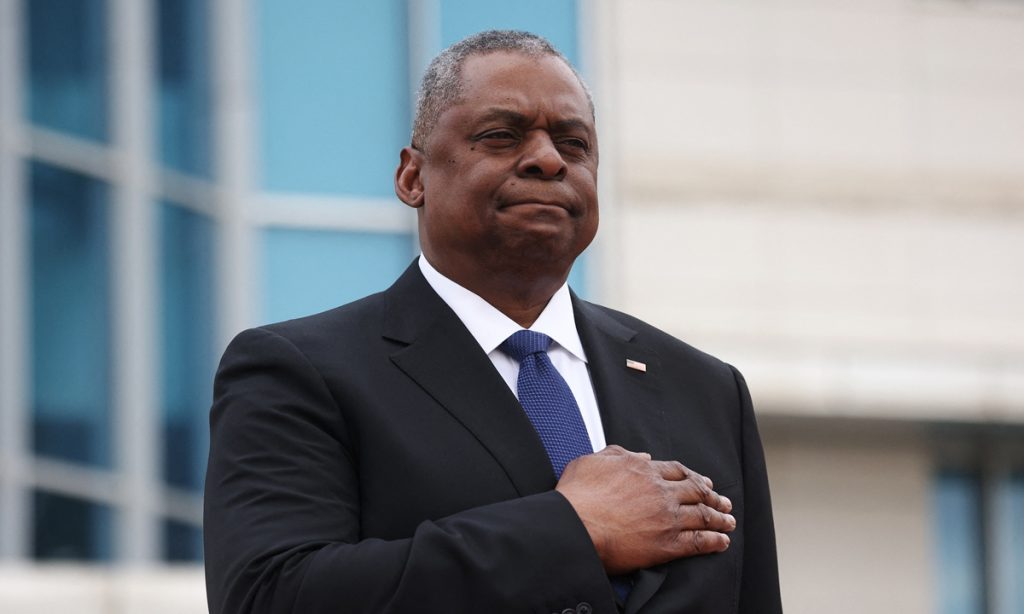'Austin absence' exposes internal chaos, erodes US global image

As the farce of US Defense Secretary Lloyd Austin's absence continues to unfold, the Pentagon revealed on Tuesday local time that the key cabinet member had undergone surgery for prostate cancer and had suffered complications.
Austin sits only below President Joe Biden in the chain of command for the US military and Biden learned about the diagnosis of prostate cancer only on Tuesday, according to the White House.
Days after Austin's unannounced hospitalization shocked the White House, Americans as well as the world, this lag in notifying a serious diagnosis again proves the dysfunction in the US' chain of command and control, Lü Xiang, an expert on US studies at the Chinese Academy of Social Sciences, told the Global Times on Wednesday.
Austin may have kept his health situation secret for the sake of his own career, but for the administration system, it is a huge loophole, Lü said.
Deputy Secretary of Defense Kathleen Hicks was on vacation in Puerto Rico when she was abruptly told to assume some of Austin's responsibilities on January 2. She was informed of the situation on January 4, the same day as Biden knew.
If Austin can keep his health situation a secret within the cabinet, he can also keep other information secret, Lü noted.
Considering the US is a global power with prominent military presence overseas, such a shortcoming in governance is not only a threat to US security, but also poses a major risk to global security, Lü said.
The Pentagon confirmed that Austin remained hospitalized on Tuesday. A spokesperson did not provide an update for when he would be discharged, but claimed Austin has full access to required secure communications capabilities and continues to monitor the US Department of Defense's operations, media reported on Wednesday.
Biden also has "complete confidence" in his defense secretary and plans to keep him in his position through his term, according to CNN on Tuesday.
Analysts said Biden may be inclined to keep Austin in the post at first as personnel changes amid whiting-hot presidential election campaigns could impact Democrats negatively, but such "protection" is likely to frustrate American voters and has already incurred fierce attacks from the Republicans.
Lü believes the farce of internal politics will also cause shock waves for US diplomacy.
The incident and potential personnel change adds to uncertainty in US foreign policy, and China, which the US describes as a competitor, has prepare for the uncertainty and future risks. The US' global image is again under question and its allies in different geopolitical blocs, be it QUAD or AUKUS, will have to carefully weigh US promises and actual commitment, Lü noted.